
Spanish National Cancer Research Centre CNIO
If you are the contact person for this centre and you wish to make any changes, please contact us.
Head of the Metabolism and Cell Signalling Group at the CNIO
Researcher at the Centro Nacional de Investigaciones Oncológicas, president of the Commission of Personalised Medicine of the Spanish Association of Human Genetics and vice-president of the Spanish Society of Pharmacogenetics and Pharmacogenomics
Head of the Bioinformatics Unit at the National Cancer Research Center (CNIO)
Head of the Clinical Research Unit in Cancer Immunotherapy at CNIO-HMarBCN
Group Leader. EMBO YIP. ERC investigator. Co-founder and Scientific Director of RENACER. Brain Metastasis Group. Molecular Oncology Programme, CNIO.
Head of the Cell Division and Cancer Group at the CNIO and visiting professor at the Dana Farber Cancer Institute at Harvard University (Boston)
CNIO Director
Head of the Cancer Immunity Group at the CNIO
Head of the Melanoma Group at the Spanish National Cancer Research Centre (CNIO)
Head of the Growth Factors, Nutrients and Cancer Group of the National Cancer Research Center (CNIO)

A phase 3 clinical trial conducted in China tested 210 patients with advanced non-small cell lung cancer—the most common type—to see whether the time of day when immunotherapy and chemotherapy were administered influenced their effectiveness. The data indicate that, on average, those who received therapy after 3 p.m. did not see their cancer worsen for 5.4 months. In contrast, those who received it before that time did not see their cancer worsen for an average of 11.7 months, almost twice as long. Overall, response rates were 56.2% and 69.5%, respectively. The results, published in Nature Medicine, suggest that scheduling therapy early in the day may offer a simple and cost-free way to improve treatment efficacy.
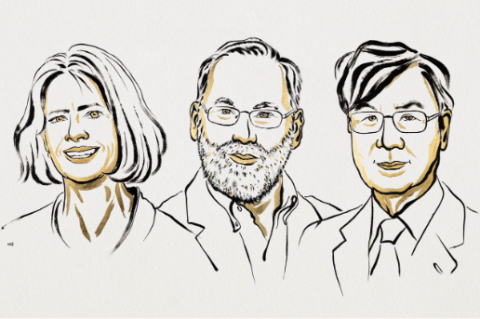
The Karolinska Institute has awarded the Nobel Prize in Medicine or Physiology to Mary E. Brunkow, Fred Ramsdell and Shimon Sakaguchi for describing how the immune system is regulated so as not to harm us. His groundbreaking discoveries on peripheral immune tolerance have spurred the development of new treatments for cancer and autoimmune diseases.
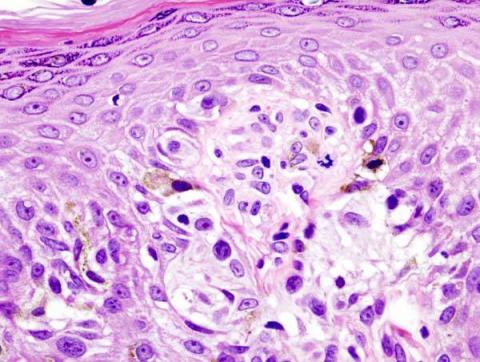
Over the past 20 years, a class of cancer drugs known as CD40 agonist antibodies has shown great potential, but also limited impact in patients and adverse reactions. In 2018, it was demonstrated that they could be improved to boost their effectiveness and limit serious side effects. A study published in Cancer Cell reports the results of using one of these drugs in a small phase 1 clinical trial: out of 12 patients, all with different types of metastatic cancer, six saw their tumors shrink, including two in whom they disappeared completely.
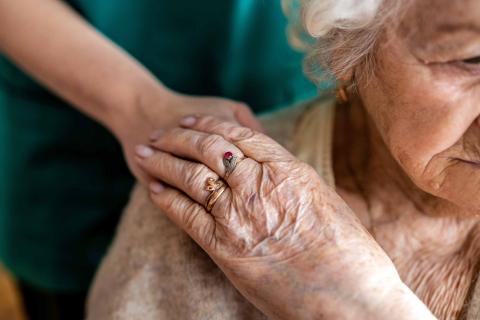
Several studies have suggested that taurine concentrations in the blood decrease with age and that supplementation with this amino acid could delay ageing. Now, a study carried out in the USA with Spanish participation, including data from humans, monkeys and mice, shows that this decline is not systematic and that it depends more on individual factors than on ageing, so taurine is not a reliable marker of ageing. The results are published in the journal Science.

Research analyzing data from more than 200 countries concludes that people over the age of 65 will face an increase in skin cancer cases over the next two decades. The study, published in JAMA Dermatology, used data from 1990 to 2021 and made estimates through 2050. Men and people living in countries with higher sociodemographic indices showed a higher incidence.

A team of US researchers has followed some patients treated with CAR-T therapies in a small clinical trial conducted between 2004 and 2009 to treat children with neuroblastoma, a nerve cell tumor that can have a poor prognosis. At least one of them, a woman who was treated with CAR-T as a child, remains in remission 18 years later, the longest duration of such therapy described to date. The results are published in the journal Nature Medicine.

CAR-T cell-based treatments have been successful against some blood tumours, but are much less effective for solid tumours. A phase 1 clinical trial has tested their use in 11 children and young adults with diffuse midline glioma, a tumour of the nervous system that is considered incurable. The results, published in the journal Nature, indicate that the treatment improved functional status in nine of the 11 patients. One of the four who showed a strong response is still healthy four years later.
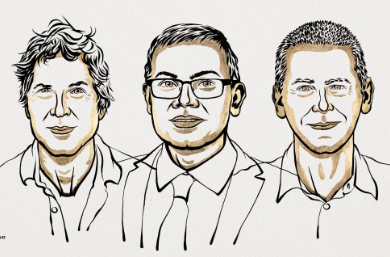
The Royal Swedish Academy of Sciences has awarded the Nobel Prize in Chemistry 2024 on the one hand to David Baker for computational protein design, which makes it possible to construct proteins with functions not present in nature. On the other hand, jointly to Demis Hassabis and John M. Jumper of Google DeepMind, for the development of AlphaFold2, which allows the structure of the 200 million known proteins to be predicted at high speed.

If you're traveling to –or from– distant lands, this brief guide can help you minimize the effects of the time difference, the feared jet lag, so you can enjoy your vacation more (or go back to the routine less harshly).
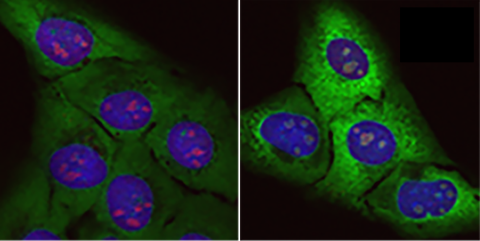
In a paper published in Molecular Cell, a team of researchers led by the Spanish National Cancer Research Centre (CNIO) provides the first evidence that a possible cause of the hereditary type of ALS - familial ALS - is the accumulation in motor neurons of 'junk proteins', proteins with no function that accumulate unduly and prevent the cell from functioning properly. In addition, the research describes a new causal factor in the ageing process: nucleolar stress, which encompasses alterations in organelles called nucleoli.